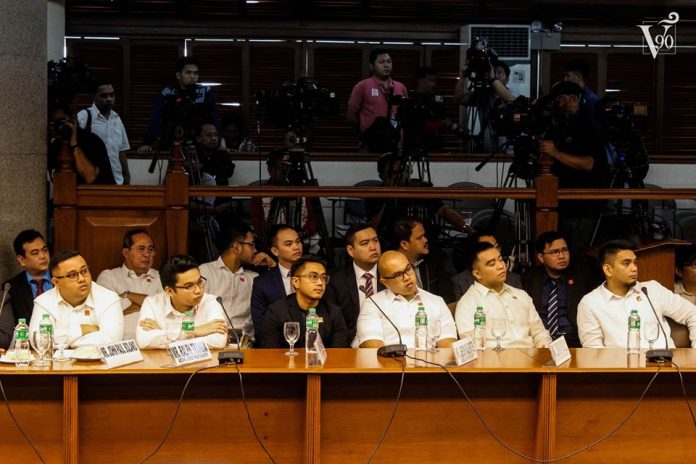
A Manila regional trial court (RTC) has denied the petition of 10 Aegis Juris fraternity members to dismiss the charges against them over the death of UST law freshman Horacio “Atio” Castillo III in 2017.
Manila RTC Branch 11 Acting Presiding Judge Shirley Magsipoc-Pagalilauan denied “for lack of merit” on Feb. 24 the demurrer to evidence filed separately by the fratmen. The 10-page resolution was released publicly on March 2.
By filing a demurrer to evidence, petitioners are asking for the dismissal of criminal charges against them on the ground of insufficient evidence. Arvin Balag, Mhin Wei Chan, Axel Munro Hipe, Marcelino Bagtang Jr., Joshua Joriel Macabali, Oliver John Audrey Onofre, Robin Ramos, Danielle Hans Matthew Rodrigo, Jose Miguel Salamat and Ralph Trangia filed the motion.
They claimed that “the prosecution failed to provide sufficient evidence” against them and insisted that Castillo died due to enlargement of the heart and not due to the injuries from hazing.
In her ruling, Magsipoc-Pagalilauan wrote: “The prosecution having established that Horacio died of hazing and that all the accused were present during commission of the crime, it is now incumbent upon the accused to adduce evidence to controvert that of the prosecution or that they prevented the commission of a crime of hazing.”
“Even if the victim is suffering from an internal ailment, liver or heart disease, or tuberculosis, if the blow delivered by the accused — (a) is the efficient cause of death; or (b) accelerated his death; or (c) is the proximate cause of death; then there is criminal liability,” she continued.
Magsipoc-Pagalilauan said that the accused could still be held responsible for Castillo’s death “following the time-respected doctrine: ‘He who is the cause of the cause is the cause of the evil caused.’”
Some of the accused argued that the prosecution failed to establish beyond reasonable doubt all the elements of a violation of the Anti-Hazing Law (Republic Act 8049). A few denied the hazing incident, while others raised in their petitions their lack of participation in the hazing.
The accused fratmen could face up to 40 years of imprisonment if found guilty of violating the Anti-Hazing Law.
To the claims, the judge responded: “Through the testimonies of the said prosecution witnesses and documentary exhibits, the prosecution was able to establish all the elements of the offense of hazing as well as the presence of all the accused during the hazing.”
The accused also questioned the credibility of prosecution witnesses, specifically that of their fraternity brother Mark Anthony Ventura for giving inconsistent statements and whom they said was “unreliable” because of his “motive to implicate the accused to save himself from the prosecution.”
However, the judge said that inconsistencies in Ventura’s statements were minor and that he had provided “a detailed, direct and straightforward narrations of the events that transpired during the hazing.”
“Evidence do not show that Mark Anthony Ventura has improper motive to falsely testify against the accused, his ‘brods’ in the Aegis Juris Fraternity,” the judge continued.
Castillo was declared dead on arrival at the Chinese General Hospital at 9:21 a.m on Sept. 17, 2017.
John Paul Solano, the frat member who brought Castillo to the hospital, was convicted in June 2019 and was sentenced to up to four years and two months in prison for obstruction of justice. J.B.T. Lim

0 Comments